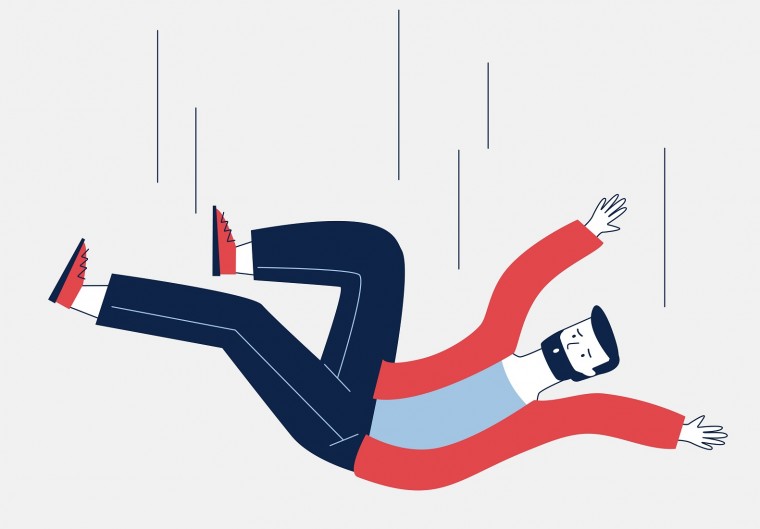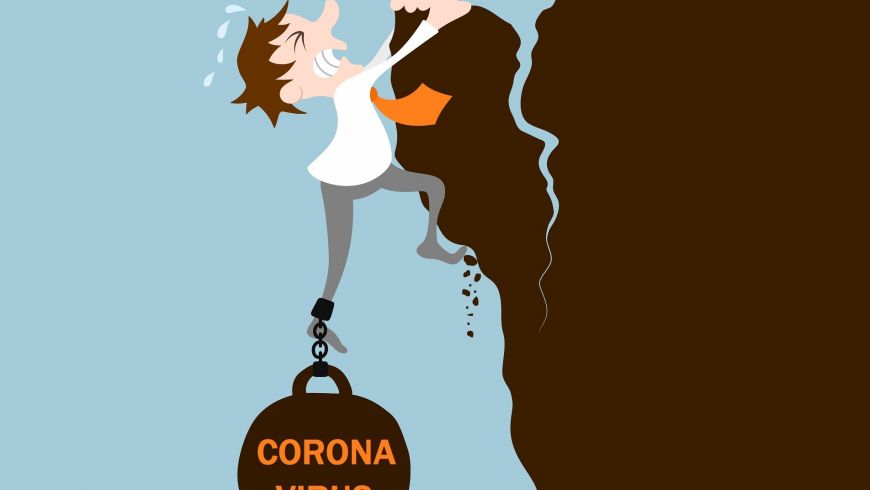Most of the time, on the brink of an economic crisis, businesses choose to give up the online marketing services, including SEO. However, what most of them don't take into account is the fact that such a decision, even if it's a short term one, can trigger chain reactions, which can cause irreparable damage to your online business. Especially if you are on a competitive market, you can lose top positions from one day to the other.
Why does this happen? Because Google's algorithm wants to identify the sites that are no longer active and about which users "don't talk" anymore. Therefore, it proposes to penalize in positions the businesses which are closed in real life, but which still have existing sites. Google doesn't want to show closed sites to its users, online shops that no longer take orders. For this reason, it introduced these "activity" criteria in its algorithm.
Of course, if the costs associated with these services depend on your revenues and you can no longer support them, you don't have any other option than to stop them, assuming losing positions on Google. Otherwise, before stopping the activity undertaken by the SEO agency you contracted, you should take into consideration the following risk factors you expose your business to.
1. If you stop generating new content
- You will lose the opportunity to grow on new keywords and expressions and you won't be able to support the ones you targeted until now;
- You will halt the creation of new pages on actual topics. This way, your content will miss the chance of being shared on social media, resulting in low traffic;
- You will discourage the users' desire to come back to your site for new content. This will reduce your
brand searches - a crucial factor and a quality indicator for Google;
- You will stop adding to your newsletter new users, who are eager to find out news about the products or services you offer.
As we mentioned before, you always have to take into consideration the fact that if you pause creating content, Google will consider your site inactive, which will determine a slow, but certain process of decline. The future belongs to those who can convert traffic using as little resources as possible, and once you stop this process, you will lose a competitive advantage. Think of this as a marathon race - those who will stop running or will slow down will be overcome by those who run at a constant pace, losing all their momentum.
 2. If you stop the technical monitoring of your site
2. If you stop the technical monitoring of your site
Those who don't know how internet works will probably find it difficult to understand why sometimes technical problems appear out of the blue. Google's algorithms are constantly changing (over 3.200 updates were made in 2018 alone), and the rules of the game can change from one day to the other. This is why, before giving up a team of specialists who monitor and adapt your site to the new changes, you will have to consider the following:
- Robots.txt can block the access of crawlers to your site's pages;
- You can automatically generate duplicate content;
- You can be left behind when it comes to the latest optimization changes for mobile, therefore losing a big part of your users who directly order products or services via smartphone;
- Your site can slow down since the time spent by users on a single piece of digital information decreases year after year.
Therefore, when you quit monitoring these technical factors (and a lot of others), problems start to gather, resulting, sooner or later, in errors that can affect the site as a whole.
3. If you stop improving or updating your on-page content
When you try to change the appearance of a page of interest, the traffic will normally grow with 10 to 30%, sometimes even more. It's very important to be in tune with the latest trends, both from an aesthetic, as well as an informative point of view. Google pays attention to the new changes, therefore you will receive a vote of confidence from the search engine, which will position you higher in SERP.
There are numerous ways of updating a page:
- Adding or improving the FAQ list (frequently asked questions);
- Adding links to new articles;
- Updating to new problems which users can deal with and offering a viable answer;
- Adding
new schemas for data structuring;
- Changing the template of a page;
- Changing or improving any type of content: texts, images, videos.
To confirm all these changes, you will have to: make research on users' new search intents, constantly analyze the competition, create new online marketing strategies, and even find out the new aesthetical preferences of potential clients in your target.
4. If you stop monitoring external links
When you stop the SEO activity, you expose yourself to a series of risks which include:
- Deleting the content, but keeping the link which directs to your site;
- Google Alerts from sites which hosted a backlink profile, but which now are full of malware;
- Competitors who try to create black hat SEO directing to your site (it happens more often than you think).
Actually, even if you are not yet on the first page of results on Google, it's not good to stop your off-page activity. Google's algorithm will not figure out what happened and, even if you won't lose a lot in terms of ranking, it will be hard to come back on the ascending trend. The search engine doesn't appreciate inconsistency in content publishing or articles that link to your site. Somehow, you send the message that your whole evolution up to this point is SEO related, and now you stopped the activity.
5. If you don't pay attention to the news
Most online businesses are permanently monitoring their competition, which allows them to easily figure out when a website gives up creating new content and making the necessary updates. This way, they can rapidly outrun you on certain positions that seemed stable, just by enticing users' imagination and adapting the content to hot topics. Here is what you have to take into consideration:
- This economic crisis generated by Coronavirus will not last forever. Sooner or later, when the normal activity will resume, you'd want your business to stay on top;
- You lose sight of the fact that you can outrun competitors during this period. As a conclusion of Sun-Tzu's philosophy, critical periods are the perfect battlefield, and you can win even by your "enemy" not participating;
- Don't forget that SEO has the purpose of naturally attracting the user, not delivering him content at the wrong time. Of course, you will experience decreases in traffic and conversions due to the virus. However, try to look at the whole situation patiently. Keep offering valuable information, which will attract clients still interested in your business;
- You don't have to set up personal meetings for SEO. Everything is online, and the discussions and strategies can take place on Skype, eliminating the need for traveling and respecting the quarantine measures imposed during this period.
In conclusion, if you can't support this expense in crisis, stop it. Otherwise, it's better to go on. The crisis will pass, and after it, you will more to get back your old positions. Therefore, talk to your SEO services provider, as he will explain exactly what is the situation and you will see if it's possible to reduce the subscription, without majorly affecting your results. In short, don't give up, continue to invest in new and quality content, and the chances of your business continuing at the same level after the crisis will grow exponentially.





